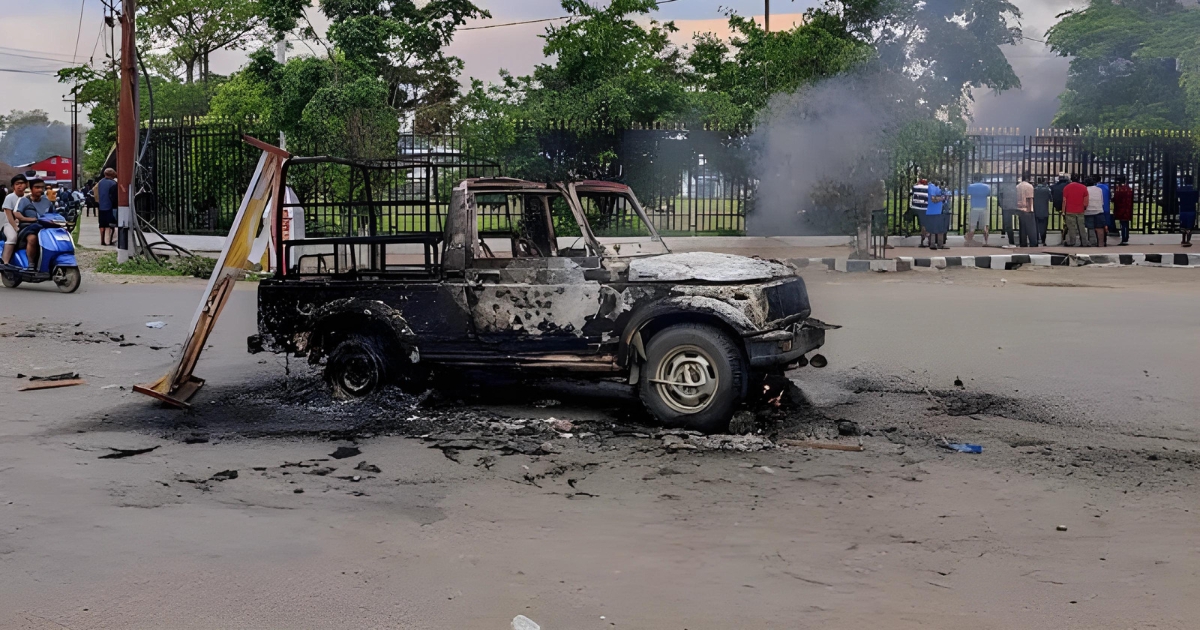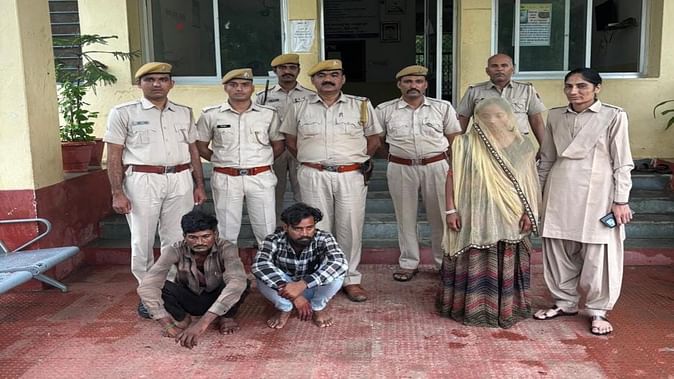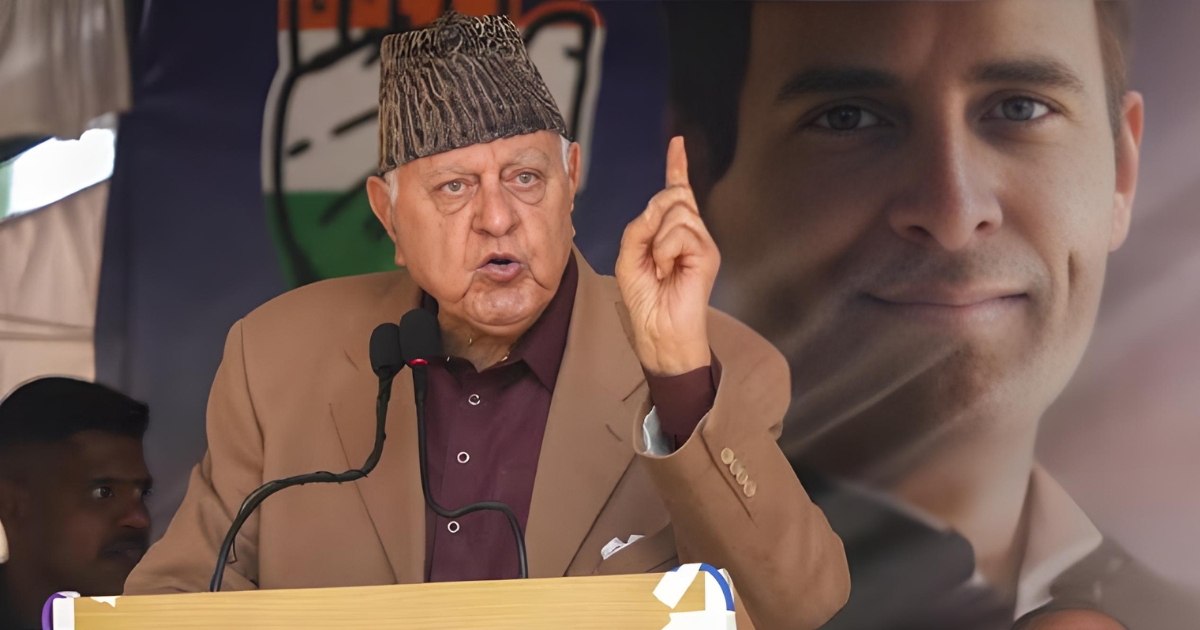As Manipur approaches the one-year anniversary of its ethnic conflict, the state remains deeply divided, with persistent violence between the Meitei and Kuki communities. The commemorations of this anniversary highlight the ongoing tensions and the contrasting perspectives of the involved groups.
Diverse Observances Reflect Ongoing Strife
The Coordinating Committee on Manipur Integrity (COCOMI), representing the Meitei community, is set to hold a series of discussions in Imphal under the theme ‘365 days of Chin Kuki Narco Terrorist Aggression in Manipur’. These discussions aim to delve into the reasons behind the conflict’s persistence and explore potential solutions, emphasising the narrative of narco-terrorism.
On the other hand, the Kuki Inpi Manipur (KIM) is observing the day as ‘Kuki-Zo Awakening Day’, focusing on the socio-political awakening and resistance against perceived state oppression.
Also Read: Imkong Imchen urged to understand border dynamics before speaking
Solidarity and Remembrance
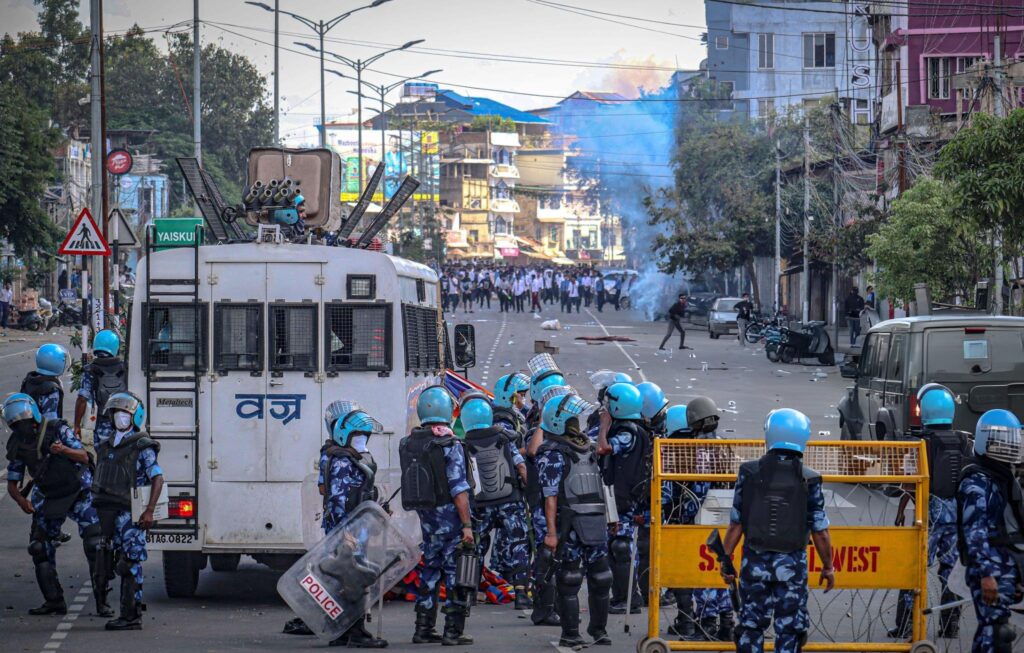
The Thoubal Amasung Kakching District Apunba Lup (TAKDAL) has declared the day as ‘Manipur Solidarity Day’, calling upon the public to light lamps in solidarity with the victims and to foster a sense of unity across the state.
Simultaneously, the Indigenous Tribal Leaders’ Forum (ITLF) and the Committee on Tribal Unity (CoTU) have called for total shutdowns in their respective districts of Churachandpur and Kangpokpi. Both groups are encouraging the public to hoist black flags as a symbol of mourning and solidarity, and have planned public events to mark the occasion.
Also Read: Pughoboto farmers learn organic cultivation under MOVCD
The Impact of the Conflict
Since its beginning on May 3, 2023, the conflict has claimed over 200 lives and displaced more than 60,000 people. It has severely disrupted daily life, with ongoing violence affecting business activities, education, and community interactions.
The state’s response, which is perceived as biased towards the Meitei community, has further deepened the trust deficit with tribal groups.
Challenges to Peace and Reconciliation
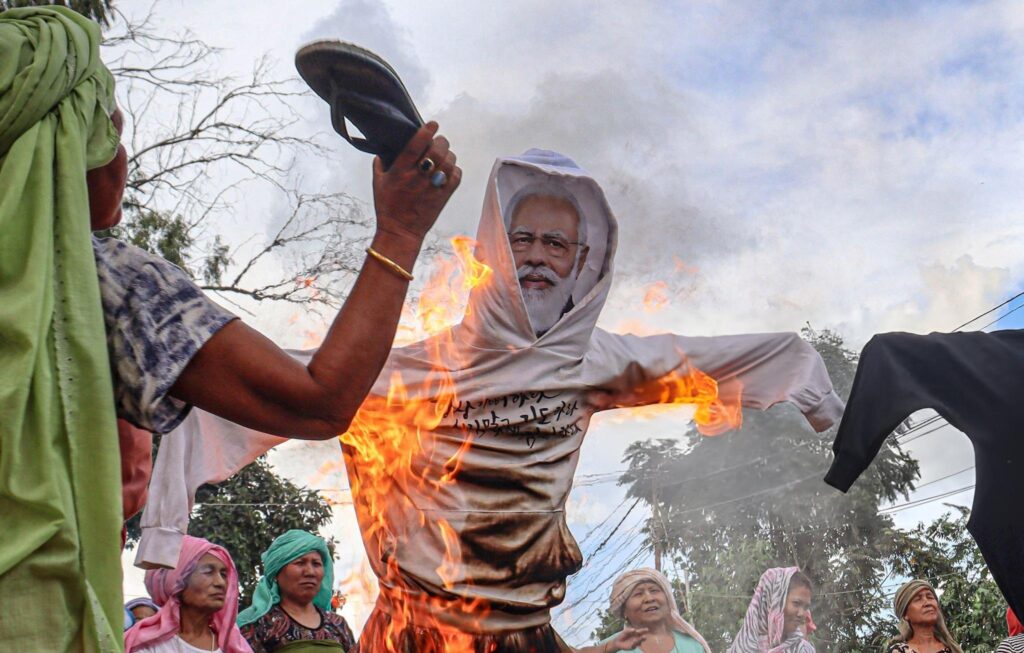
Each group involved in the conflict sees themselves as victims, harbouring grievances and demands for justice. This perception complicates the path to reconciliation, as mutual accusations and demands for justice often lead to further violence.
Analysts and community leaders stress the importance of genuine dialogue that includes all stakeholders to address the underlying issues fuelling the conflict.
Also Read: India’s rubbish reckoning: A journey through the trash
Future Prospects
As Manipur marks this sombre anniversary, the divergent observances mirror the deep divisions and highlight the challenges facing the state. The need for an inclusive approach to peacebuilding and reconciliation, addressing the grievances of all communities involved, is crucial.
The anniversary not only serves as a day of remembrance but also as a pivotal moment to foster dialogue and understanding, aiming for a peaceful coexistence in Manipur’s future.
This anniversary is a stark reminder of the ongoing challenges and the urgent need for a concerted effort to heal and rebuild the fractured community relations in Manipur.
The path ahead requires empathy, open communication, and a willingness to address the root causes of the conflict to pave the way for lasting peace and harmony in the state.
